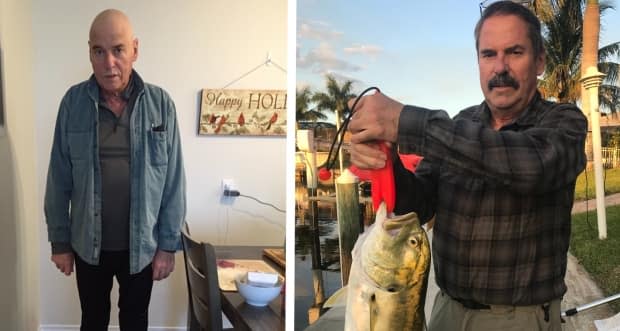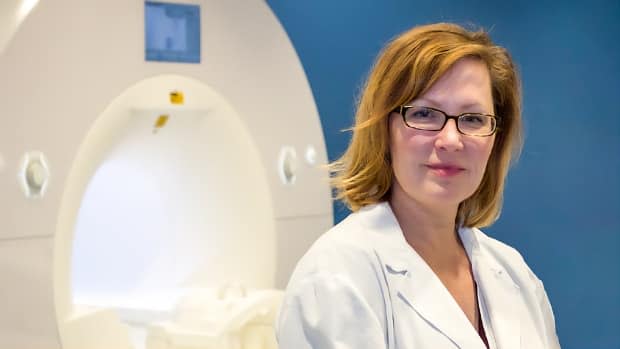Specialized rehab program helps cancer patients get strong without hurting their hearts

For Paul Guenard, the idea of joining a fitness rehabilitation program was definitely a little scary.
A cancer patient who'd previously been given six months to live, Guenard was in a weakened state after undergoing high-dose chemotherapy and a stem-cell transplant. His heart, which wasn't strong to begin with, was now at an increased risk for complications.
"You know those little orange desserts … in a little cup with a cellophane top on it? I couldn't open one of those to save my soul," said Guenard, who underwent treatment for stage-four mantle cell lymphoma in 2015.
But the chance to regain normalcy in a safe, supervised environment prompted Guenard to try a one-of-a-kind cardiac rehabilitation program designed at the University of Alberta.
"When you're told that you have to get your affairs in order and that you have maybe six months, that's a little bit depressing," he said. "I'm going to do whatever the heck I can to prove it wrong."

The aim of the eight-week program, founded six years ago by U of A associate professor and oncology researcher Edith Pituskin, is preventing future chemotherapy-driven cardiac health concerns.
"Even standard doses of chemotherapy are very hard on people's body systems, with short- and long-term harm to their hearts and muscles," Pituskin said.
Unlike traditional recovery protocols for stem-cell transplant cancer patients, the program provides a well-rounded approach to rehabilitation, including fitness training, stress management sessions and diet.
Pituskin was initially told it would be unethical to ask health-compromised cancer patients to take part in a physical exercise regime.
She disagreed.
"We know very well that cardiac rehabilitation programs do an exceptional job out in the traditional cardiac populations," Pituskin said.
"So it struck me that this was really a wonderful opportunity to be able to offer a really holistic, preventive approach for this high-risk cancer patient — and, ultimately, survivor — population."
Patients are supervised by a team including doctors, nurses, exercise physiologists, cardiologists and dieticians.
Guenard said the team gave him the confidence to participate fully.
"It is very comforting to be doing exercise [while] having somebody monitoring you and saying, 'Come on, go harder, it's safe. .. .We're monitoring you to make sure that you don't hurt yourself,'" said Guenard.
Program benefits, future
Pituskin said there is potential for the program to be offered beyond the Mazankowski Alberta Heart Institute in Edmonton, noting COVID-19 has opened doors to more virtual possibilities.
"[It] might be something that people could do not just within their own home, but in their own community environment," she said.
For Guerard, this community aspect of the program was crucial. Seeing other people in the program was a boost to his morale.
"You don't feel so alone," he said. "If you look at them and say, 'OK, he thinks he can go through this, so can I.'"
Fostering that environment of positive, holistic, prevention-focused rehabilitation was part of Pituskin's goal.
"How can we best help people through what is really death-defying cancer treatment and help them to have hope, help them to have the tools that they need to be as healthy as possible on the other side?" Pituskin said.
Guerard couldn't agree more. From renovating his basement to flying a plane, he feels like he has a new lease on life.
"I think one of the biggest benefits of that is a psychological boost that it gives you and your ability to look into the future and say, you know, life's not over," he said.
"And that's very important when you've been told that your life is over."

 Yahoo Finance
Yahoo Finance 